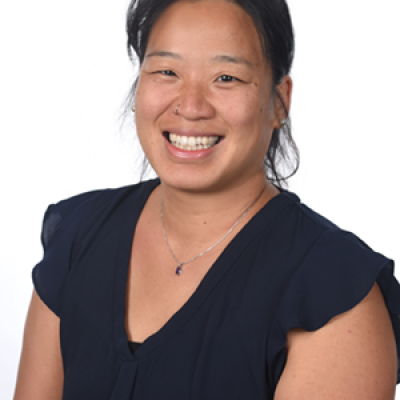Closing the anthropogenic carbon cycle requires selective valorization of CO2 and efficient methods for capture and concentration from dilute streams. The first part of the talk will discuss the challenge of product selectivity in electrocatalytic CO2 reduction to renewable fuels. Desirable CO2 reduction products require proton equivalents, but key catalytic intermediates in CO2 reduction can also be competent for direct proton reduction to H2. Understanding how to manage divergent reaction pathways at these shared intermediates is essential to achieving high selectivity. Both proton reduction to hydrogen and CO2 reduction to formate generally proceed through a metal hydride intermediate. We apply thermodynamic relationships that describe the reactivity of metal hydrides with H+ and CO2 to generate a modified Pourbaix diagram which outlines product favorability as a function of proton activity and hydricity (∆GH-), or hydride donor strength. We validate use of our diagram experimentally; [Pt(dmpe)2](PF6)2 is a highly selective electrocatalyst for CO2 reduction to formate (>90 % Faradaic efficiency) at an overpotential of less than 100 mV with no evidence of catalyst degradation after electrolysis.
Use of carbon dioxide as a feedstock for fuels and chemicals also requires more efficient methods for capture and concentration from air or other dilute streams. Current methods for CO2 Capture and Concentration (CCC) are energy intensive due to their reliance on thermal cycles, which are intrinsically Carnot limited in efficiency. In contrast, electrochemically driven CCC (eCCC) can operate at much higher theoretical efficiencies. However, most reported systems are sensitive to O2, precluding their practical use. Prior efforts to chemically modify redox carriers to operate at milder potentials resulted in a loss in CO2 binding. To overcome these limitations, we used common alcohols additives to anodically shift the reduction potential of a quinone redox carrier, 2,3,5,6-tetrachloro-p-benzoquinone (TCQ), by up to 350 mV, conferring O2 stability. We demonstrate a full cycle of eCCC in aerobic simulated flue gas using TCQ and ethanol, two commercially available compounds. Based on the system properties, an estimated minimum of 21 kJ/mol is required to concentrate CO2 from 10% to 100%, or twice as efficient as state-of-the-art thermal amine capture systems and other reported redox carrier-based systems. Furthermore, this approach of using hydrogen-bond donor additives is general and can be used to tailor the redox properties of other quinones/alcohol combinations for specific CO2 capture applications. Finally, progress and directions in the Center for Closing the Carbon Cycle (4C) EFRC, which is focused on integrated CO2 capture and conversion, will be discussed.

Jenny Yang
Professor, Department of Chemistry
University of California, Irvine
Dr. Jenny Y. Yang’s research program is focused on using synthetic inorganic and organic compounds to understand reactivity; specifically, how nature stores and uses energy via bond breaking and forming reactions. She is also interested in how to efficiently and economically capture carbon dioxide from air and other dilute streams for utilization or sequestration. She was inspired to pursue research relevant to renewable energy and sustainability after an internship at the National Renewable Energy Lab while she was an undergraduate.
Dr. Yang received her B.S. in Chemistry from UC Berkeley and Ph.D. in Chemistry from the Massachusetts Institute of Technology. She worked as a postdoctoral associate and then as a research scientist at the Pacific Northwest National Laboratory (PNNL) in the Center for Molecular Electrocatalysis. After a few years at PNNL, she worked briefly at the Joint Center for Artificial Photosynthesis at Caltech before starting as an Assistant Professor at UC Irvine in 2013. She was promoted to Associate Professor in 2019 and Professor and Chancellor’s Fellow in 2021. She has received the NSF CAREER Award, DOE Early Career Award, Camille Dreyfus Teacher-Scholar Award, UCI Academic Senate Early Career Research Award, Chancellor’s Award for Excellence in Fostering Undergraduate Research, and Presidential Early Career Award for Scientists and Engineers (PECASE), and is a Sloan Foundation Fellow. She is currently the Director of the DOE-funded Center for Closing the Carbon Cycle (4C).

